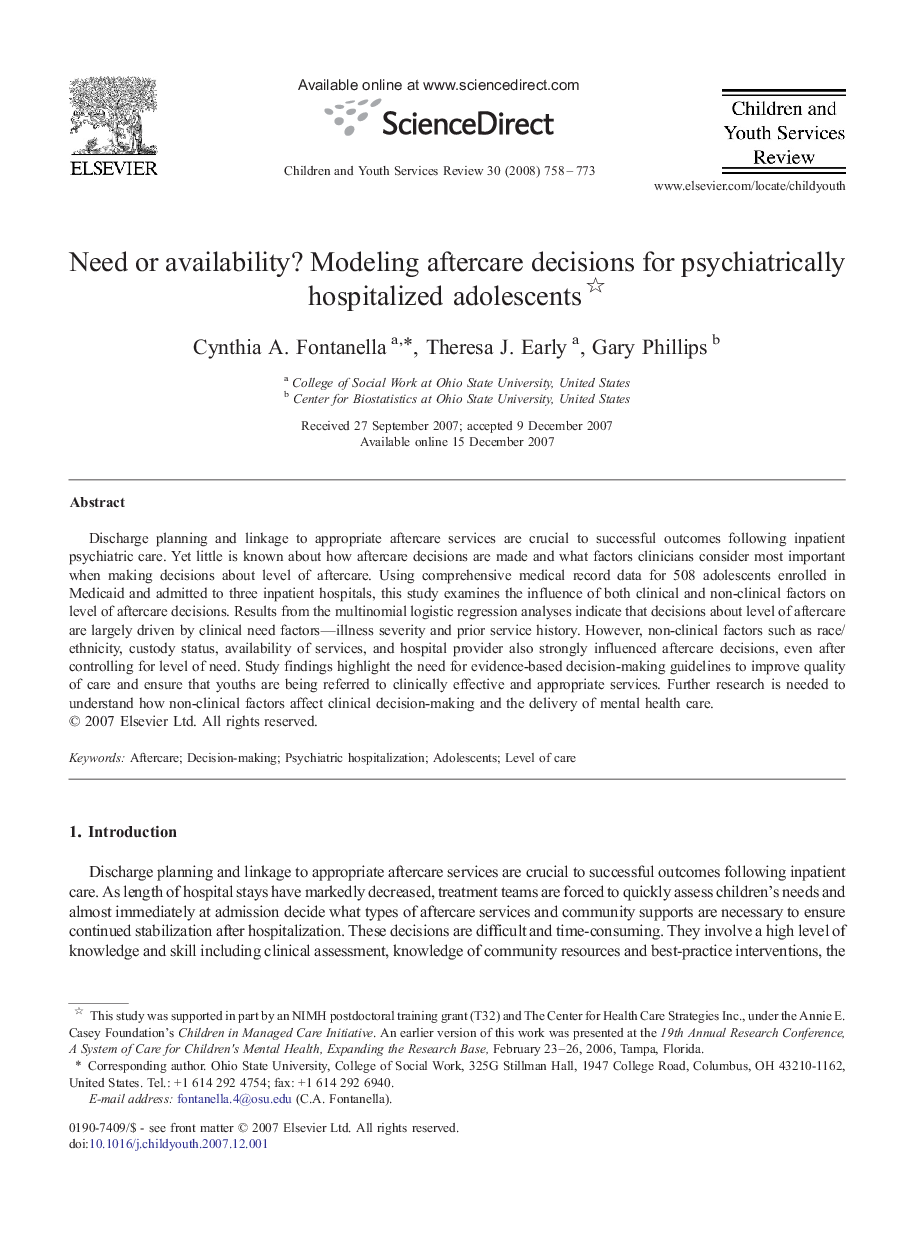| Article ID | Journal | Published Year | Pages | File Type |
|---|---|---|---|---|
| 347168 | Children and Youth Services Review | 2008 | 16 Pages |
Discharge planning and linkage to appropriate aftercare services are crucial to successful outcomes following inpatient psychiatric care. Yet little is known about how aftercare decisions are made and what factors clinicians consider most important when making decisions about level of aftercare. Using comprehensive medical record data for 508 adolescents enrolled in Medicaid and admitted to three inpatient hospitals, this study examines the influence of both clinical and non-clinical factors on level of aftercare decisions. Results from the multinomial logistic regression analyses indicate that decisions about level of aftercare are largely driven by clinical need factors—illness severity and prior service history. However, non-clinical factors such as race/ethnicity, custody status, availability of services, and hospital provider also strongly influenced aftercare decisions, even after controlling for level of need. Study findings highlight the need for evidence-based decision-making guidelines to improve quality of care and ensure that youths are being referred to clinically effective and appropriate services. Further research is needed to understand how non-clinical factors affect clinical decision-making and the delivery of mental health care.
